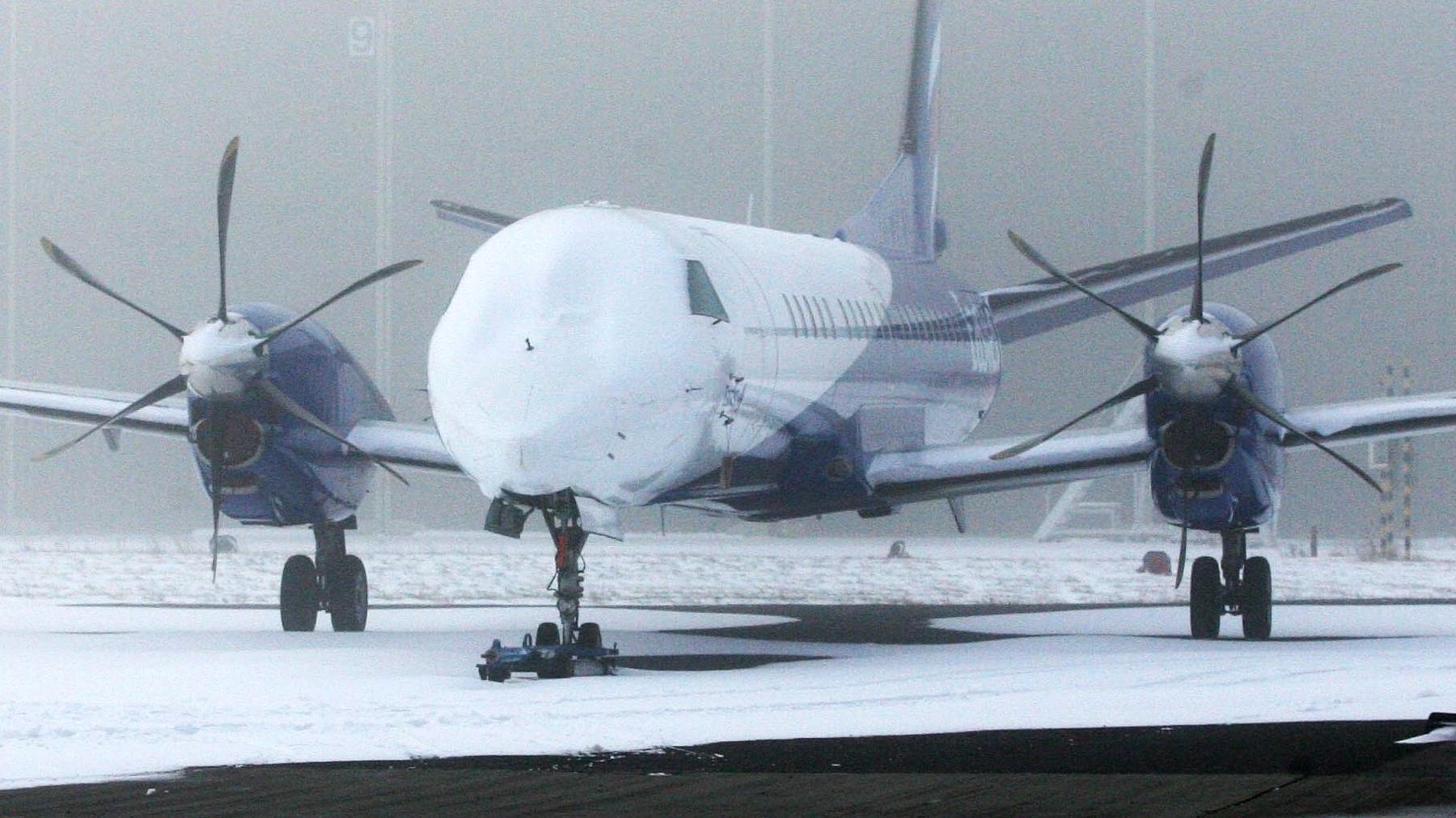Airport runway problems down to 'type of snow'
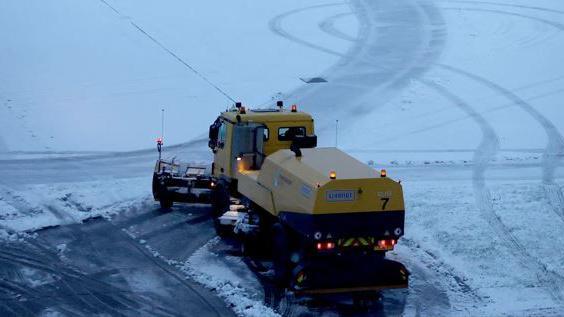
There are more than 30 snow-clearing vehicles at Manchester Airport
- Published
The closure of airport runways because of snow has inevitably led to questions about how colder countries manage not to grind to a standstill in wintry weather.
Both Manchester and Liverpool airports were forced to shut in recent days to allow snow ploughs time to clear airfields.
In response to the question of why airports in countries more used to snow don't seem to suffer the same disruption, Manchester Airport said it largely came down to one thing - the "type of snow".
And the colder the weather, the easier it can be to clear - with snow frozen below -2C easier to move than the more slippery snow that causes slush and ice, the airport said.
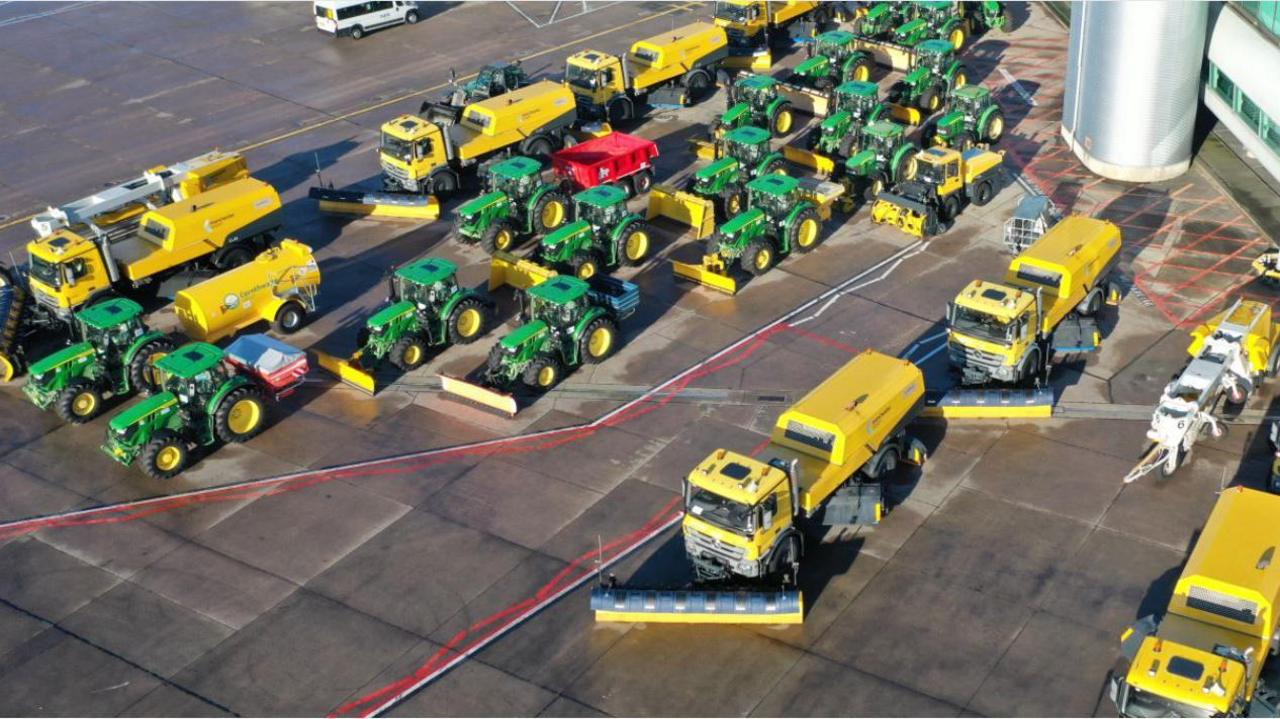
Manchester Airport's snow clearing fleet is fitted with ploughs, blowers, brushes and more.
Why close runways?
Runways are closed when snow reaches a certain depth to allow the snow-clearing vehicles to work unhindered to clear the tarmac as quickly as possible.
In Manchester's case, there are more than 30 snow ploughs on standby for this reason.
The airport said clearing the snow was "no small task" for these teams, with more than 20 miles of runways and taxiways to clear.
Some have questioned why runways cannot be gritted in advance of predicted snow showers.
The airport's road network, including car parks and footpaths is treated with grit, but it cannot be used on the airfield because it is corrosive and can damage aircraft.
Instead, a special de-icing fluid that prevents surfaces from freezing over and thaws snow is used on runways, but even that cannot stop build-ups in heavy snow, the airport said.
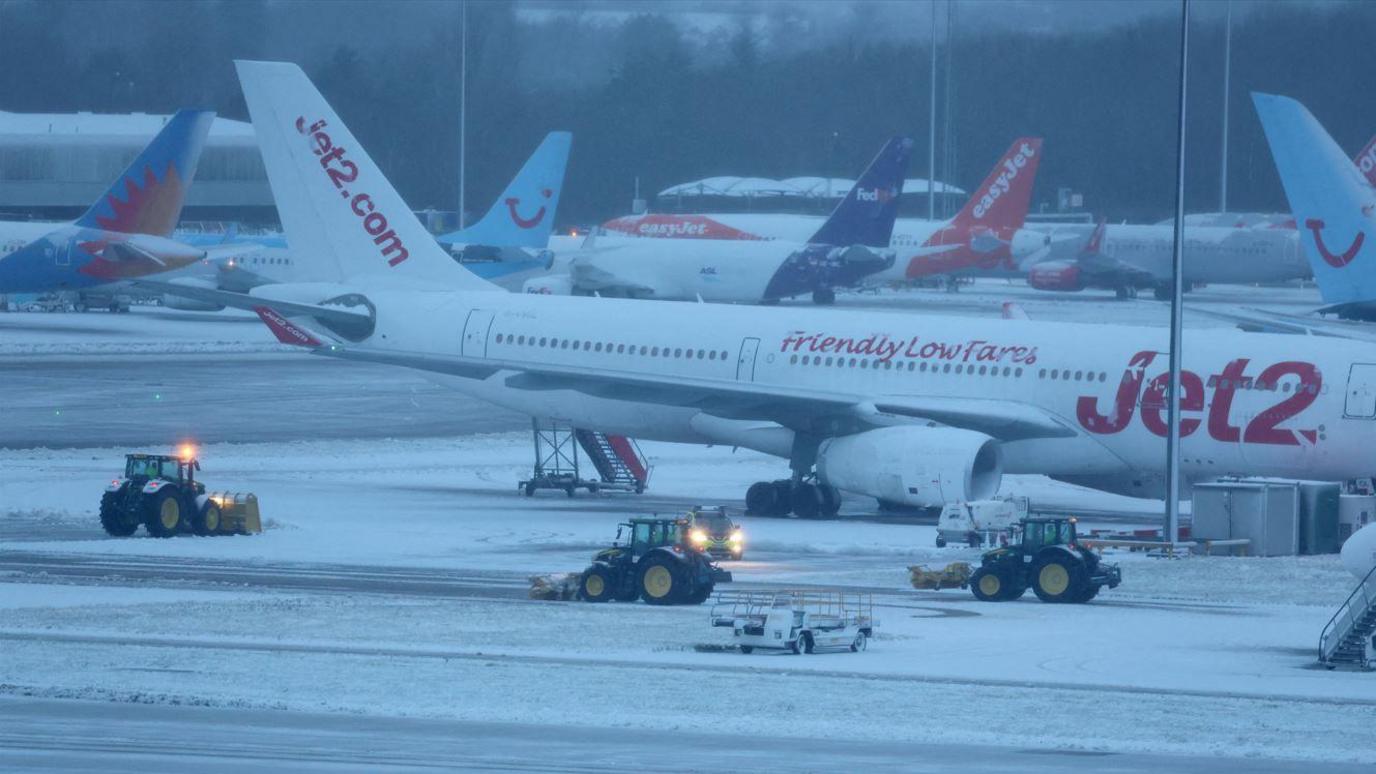
Manchester Airport's runways were intermittently shut due to snow in the past week
Snow is drier and easier to clear below -2C, while at warmer temperatures, when not all the moisture has frozen, it is slippery and harder to clear.
"This is part of the reason airports in colder countries are able to operate despite regular snow," the airport spokesperson said.
An airport spokesperson said "sophisticated" systems forecast the weather at the airport to let staff know when snow will fall, and the likelihood of it settling on the tarmac.
"This allows us to prepare by putting extra staff in place and treating the surfaces all around the airport," the spokesman said.
Listen to the best of BBC Radio Manchester on Sounds and follow BBC Manchester on Facebook, external, X, external, and Instagram, external. You can also send story ideas to northwest.newsonline@bbc.co.uk, external and via Whatsapp to 0808 100 2230.
Related topics
- Published8 January
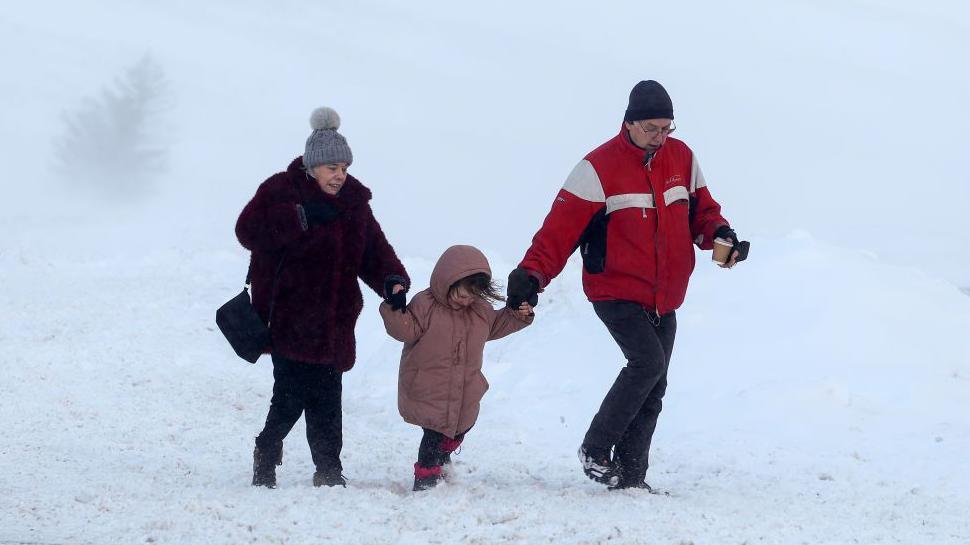
- Published5 January
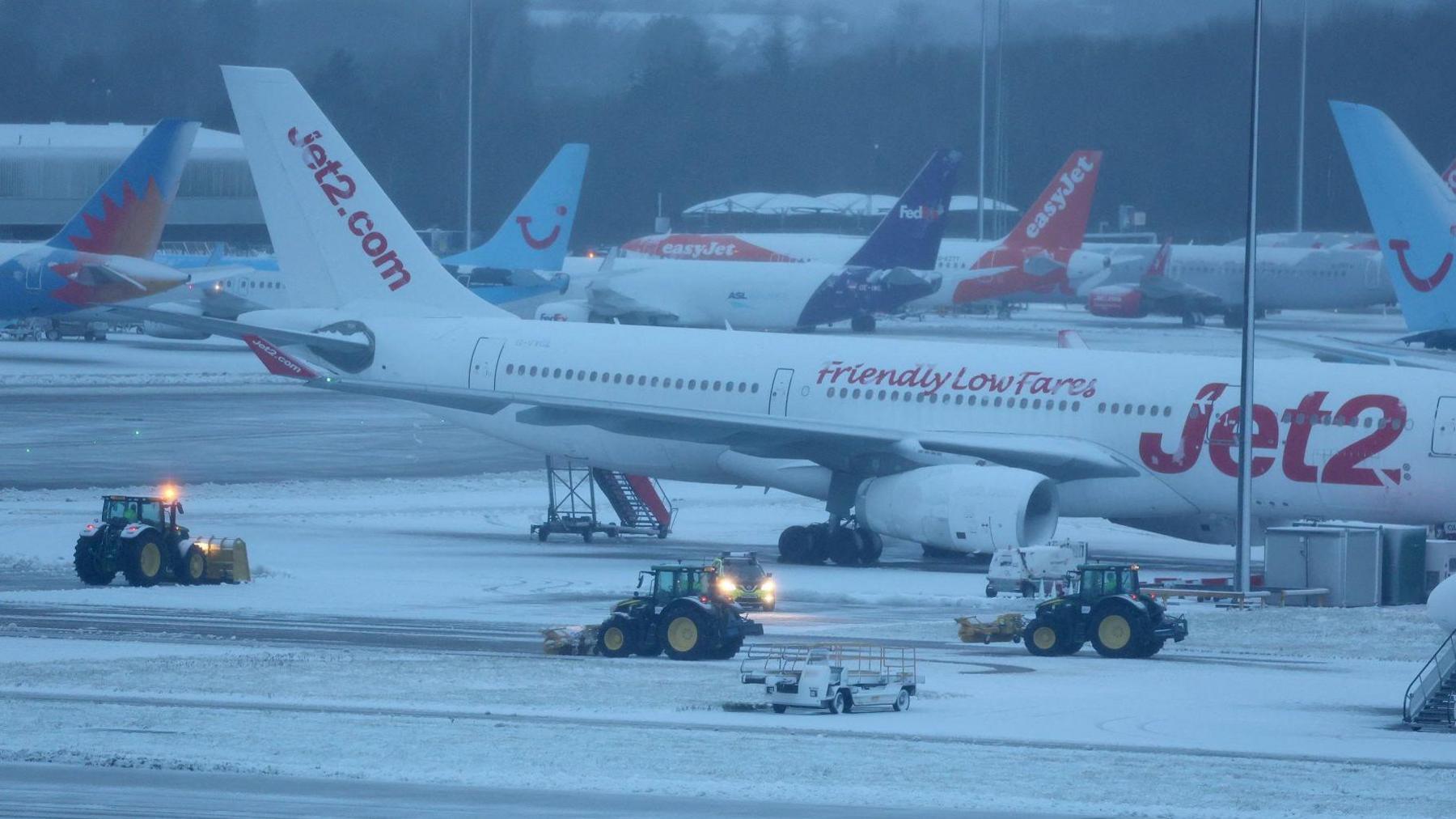
- Published4 January
